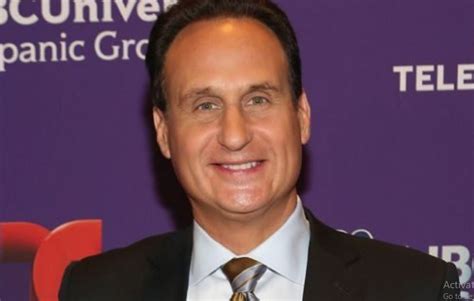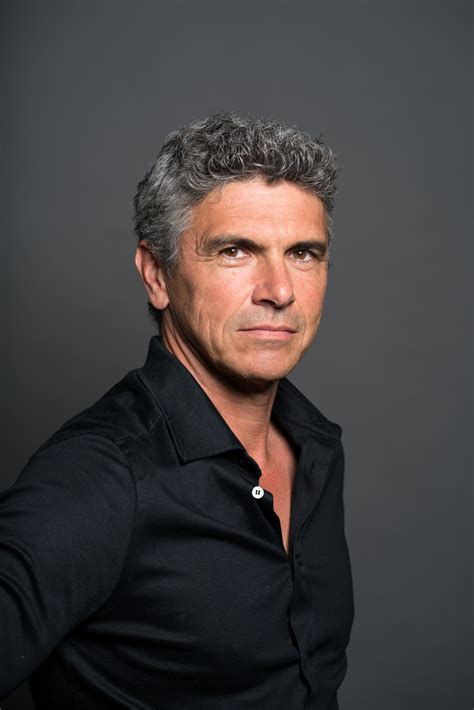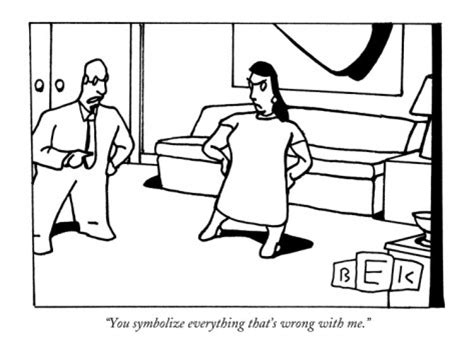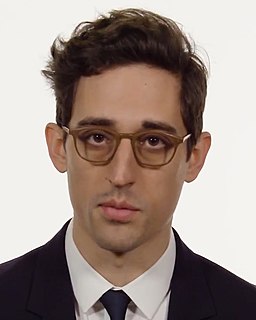A Quote by Nat Hentoff
My chronology is terrible. [Work with William Shawn] must have some ago. It was after he was fired by Newhouse. After New - when Newhouse bought The New Yorker, he said in one of those grand press
Related Quotes
Clay Felker was then - he had - to his credit, he had created New York Magazine, which was the first of the city magazines that covered the city and gave all kinds of advice and all that sort of stuff. And there were copies all over the country by the time he left. He had, however, a view of journalism that was very much, I must say, like Tina Brown's at The New Yorker. You hit 'em hard, fast, give 'em something to talk about the day after the paper comes out, as contrasted with William Shawn, who gave them something to talk about two or three years from then.
I've - that I regret. That was stupid and ignorant on my part. I went to a party as a guest of a friend of mine, a lawyer. And he had a client who I didn't know, except - maybe I'm pretending I didn't know, but he was a big investor in The New Yorker. And as I found out later in a book about The New Yorker, this guy was very unhappy about [Bill] Shawn.He thought Shawn was spending out - spending too much money on writers.
After [Bill Shawn] was fired, I was going to the YMHA [Young Men's Hebrew Association] on the Upper East Side to do a talk on free speech.I went into a coffee shop to get a piece of pie and a coffee, and I was reading a paper and I hear a voice. And it was -it was not a voice I was familiar with, but I looked across the table and I saw Lilian Ross.And sitting next to her was William Shawn - no tie, needed a shave. His voice was kind of coarse and rather loud. He wasn't drunk, but I was just stunned.
As a matter of fact if you think about [Donald Trump press conference after visit to Mexico], that could have been may be one of the Gang of Eight, the bipartisan group that in the Senate some years ago passed a bill that said border security. It said thousands of new border guards to deal with the porous border. It talked about a pathway to legalization for the 11 or 12 million undocumented that live in this country.
Another example of what I have to put up with from him. But there was a time I was mad at all my straight friends when AIDS was at its worst. I particularly hated the New Yorker, where Calvin [Trillin] has published so much of his work. The New Yorker was the worst because they barely ever wrote about AIDS. I used to take out on Calvin my real hatred for the New Yorker.
I like [John Cardinal O'Connor] a lot. He - I started a - to know him - when I asked William Shawn at The New Yorker, `Sh - can I do a profile of Cardinal O'Connor?' He said, `All right. Find out what he's like.' So I went to his office, and I heard somebody - and it turned out to be O'Connor - yelling outside, and I've never heard him since raise his voice.
William Maxwell's my favorite North American writer, I think. And an Irish writer who used to write for 'The New Yorker' called Maeve Brennan, and Mary Lavin, another Irish writer. There were a lot of writers that I found in 'The New Yorker' in the Fifties who wrote about the same type of material I did - about emotions and places.
I told [a big investor in The New Yorker] - I was complaining the way writers complain.I said`[Bill Shawn] pays very well, but a lot of my pieces don't get in,' and that was true of most of the writers there.But he pays you for them, that was very nice of him. This guy didn't think it was very nice. He figured, `Oh, my God, that's more of my investment gone,' and paying money to writers for not printing them. That became, apparently, one of his weapons against Shawn when he - in the corporate skirmishes that went on. It was a bad mistake on my part.






























